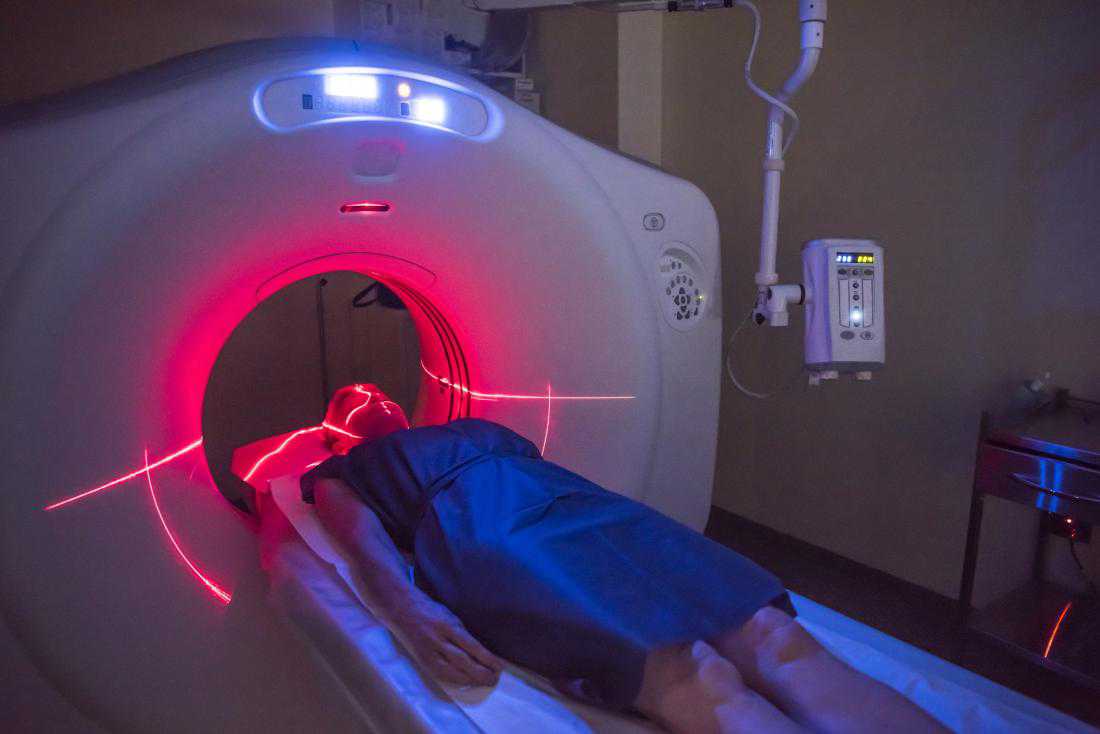Dementia: Amyloid PET scans can improve diagnosis and care
04 April, 2019

PET scans that can detect changes in the brain relating to Alzheimer's disease could improve the diagnosis and medical care of people with dementia and similar symptoms.
Investigators came to this conclusion after analyzing the early results of a study that is examining the clinical impact of a new type of scan called amyloid PET imaging.
The study is a nationwide trial involving more than 11,000 people with mild cognitive impairment (MCI) or dementia symptoms who enrolled at 595 sites across the United States.
It is the first investigation of its kind, and all the participants are beneficiaries of Medicare, the U.S. federal health insurance plan.
The results of the first phase of the trial, which now feature in a JAMA paper, reveal that providing doctors with amyloid PET scan results can affect the medical management of people with dementia symptoms.
In almost two-thirds of cases, doctors changed their minds about medications, counseling, and other medical decisions after seeing the amyloid PET imaging results.
Also, in more than a third of cases, doctors altered their diagnosis of the cause of the symptoms.
"We are impressed," says lead study author Gil D. Rabinovici, who is a professor of neurology at the University of California, San Francisco, "by the magnitude of these results, which make it clear that amyloid PET imaging can have a major impact on how we diagnose and care for patients with Alzheimer's disease and other forms of cognitive decline."
Dementia, Alzheimer's, and cognitive impairment
Dementia refers to a group of symptoms that includes a decline in the ability to remember, think, reason, and relate to others. The symptoms can worsen over time until the person can no longer take care of themselves and live independently.
According to a 2018 report from Alzheimer's Disease International, there are close to 50 million people worldwide with dementia, and this figure is set to triple by 2050.
Two-thirds of people with dementia have Alzheimer's disease. The rest have vascular, mixed, Lewy body, or frontotemporal dementia. All of these conditions affect the brain and involve the loss of brain cells.
In the U.S., where Alzheimer's is the sixth leading cause of death, the Alzheimer's Association estimate that there are about 5.8 million people with the disease and that this figure is set to rise to almost 14 million by 2050.
MCI is a condition in which a person can experience symptoms that are similar to those of early dementia. For instance, they may have some memory loss, find it difficult to carry out familiar tasks, be unable to recognize places and people, and struggle to make decisions.
Although MCI often precedes dementia, not everyone with MCI will develop dementia. The underlying cause might not be a progressive disease that kills brain cells. It could, for example, be a result of drug side effects, depression, or a lack of vitamin B-12.
Brain plaques and amyloid PET imaging
One of the distinguishing features of Alzheimer's disease is the buildup of toxic plaques of amyloid protein in the brain. Until recently, the only way to detect this hallmark was through postmortem tests on brain tissue.
Now, thanks to amyloid PET imaging, doctors can detect Alzheimer's brain plaques in living people.
With this type of medical imaging, the individual receives an injection of a chemical tracer before they undergo the scan. The tracer travels to the brain and sticks to any amyloid plaques that might be present. These then show up on the scan.
Although there is no cure for Alzheimer's disease, the ability to diagnose it more accurately in the early stages can help doctors prescribe the correct treatment and give patients and their families time to prepare for the future. It can also improve the selection of suitable candidates for Alzheimer's drug trials.
If the amyloid PET scan can rule out Alzheimer's disease as the cause of a person's dementia symptoms, doctors can then evaluate other causes, some of which might even be reversible, such as medication, sleep disturbance, or mood disorders.
The Food and Drug Administration (FDA) have approved the use of the chemical tracers that amyloid PET scans require for diagnosing dementia. However, health insurance schemes do not currently cover their cost, putting them out of reach for most people.
Study co-author Dr. Maria C. Carrillo is chief science officer of the Alzheimer's Association, one of the study's sponsors. She states that the study offers "highly credible, large-scale evidence that amyloid PET imaging can be a powerful tool to improve the accuracy of Alzheimer's diagnosis and lead to better medical management, especially in difficult-to-diagnose cases."
"It is important," she adds, "that amyloid PET imaging be more broadly accessible to those who need it."
First phase of IDEAS trial
The study is the first phase of the Imaging Dementia — Evidence for Amyloid Scanning (IDEAS) trial.
The researchers examined data on 11,409 people to analyze how amyloid PET imaging changed doctors' diagnoses and their choice of medical treatment. The primary measure was changes to decisions about prescription drugs and about counseling patients and their families on safety and planning.
The secondary measure that the team evaluated was whether amyloid PET scans caused doctors to change their diagnoses. The team also explored how the scans affected referrals to Alzheimer's drug trials.
The results showed that in the case of more than 60 percent of participants, amyloid PET scans caused doctors to change their minds about medical management. This was more than twice the number that the investigators had been expecting.
Also, doctors were twice as likely to prescribe Alzheimer's drugs to participants with MCI if their PET scans showed significant evidence of amyloid plaques.
There were also cases in which doctors who had previously prescribed Alzheimer's drugs discontinued them when the participant's PET scan showed scant evidence of amyloid deposits.
TAG(s):
